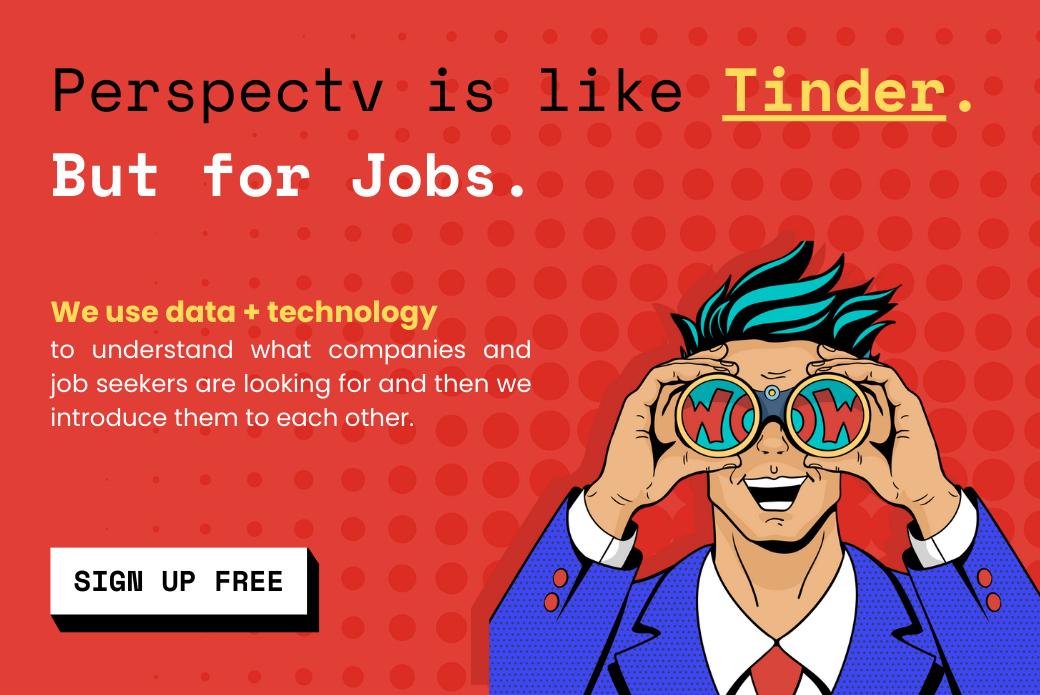6 TED Talks to Boost Your Confidence and Transform Your Life
Ready to change your life? Watch these 6 TED Talks to Boost Your Confidence and Transform Your Life.
Confidence is a vital component in the journey of personal and professional growth. Whether you’re navigating a challenging job market, preparing for an important interview, or striving to excel in your current role, confidence is key. Many people ask, “How can I be more confident?“ or “How do I build confidence?“
The answers lie in understanding and practicing confidence-building strategies that can be applied in various aspects of life. Fortunately, TED Talks offer a wealth of knowledge from some of the most inspiring speakers worldwide, helping individuals learn to be more confident and providing tools to be more confident in job interviews and beyond.
This article highlights six TED Talks that can serve as powerful tools to help you build confidence and develop the soft skills that will make you stand out and thrive in any setting.
1. Your Body Language May Shape Who You Are – Amy Cuddy
- Theme: The Power of Body Language
- Overview: Amy Cuddy’s talk explores how nonverbal communication can influence how others see us, and more importantly, how we see ourselves. She introduces the concept of “power posing,” a technique that can increase feelings of confidence, even when we’re not feeling confident.
- Importance: Body language not only affects how others perceive us but can also alter our internal state. Understanding and mastering this can be a game-changer, especially in high-pressure situations like job interviews.
- Takeaway: By adjusting your posture and body language, you can positively influence your confidence levels, making you more likely to succeed in various aspects of life.
2. The Art of Being Yourself – Caroline McHugh
- Theme: Authenticity and Self-Awareness
- Overview: Caroline McHugh’s talk is a deep dive into the importance of being true to oneself. She challenges the audience to embrace their uniqueness and resist the temptation to conform to societal expectations.
- Importance: In a world where we’re often pressured to fit into predefined molds, McHugh’s message is a reminder that our individuality is our greatest asset. This is particularly relevant in the job market, where authenticity can set you apart.
- Takeaway: Embracing who you truly are, with all your quirks and imperfections, is the ultimate key to confidence and fulfillment.
3. How to Stop Screwing Yourself Over – Mel Robbins
- Theme: The Power of Action
- Overview: Mel Robbins introduces the concept of the “Five Second Rule,” a simple tool to overcome hesitation and take action. By counting down from five, you can push yourself to act on decisions before doubt and procrastination set in.
- Importance: Action is the antidote to fear and self-doubt. Robbins’ method is especially useful for job seekers who may struggle with motivation or the fear of rejection.
- Takeaway: Confidence is built through action. The next time you’re faced with a daunting task, use the Five Second Rule to propel yourself forward.
4. Own Your Body’s Data – Talitha Williams
- Theme: Empowerment Through Data
- Overview: Talithia Williams encourages people to take control of their health by understanding and tracking their own body’s data. She demystifies complex medical data, making it accessible and empowering.
- Importance: This talk is a reminder that knowledge is power. Understanding your body and health can significantly boost your confidence, allowing you to advocate for yourself more effectively in all areas of life.
- Takeaway: Taking charge of your health data is a form of self-empowerment that can enhance your confidence and well-being.
5. The Power of Believing That You Can Improve – Carol Dweck
- Theme: Growth Mindset
- Overview: Carol Dweck’s research on the growth mindset reveals that our abilities can be developed through dedication and hard work. This mindset fosters resilience in the face of challenges.
- Importance: In the context of job seeking, a growth mindset is crucial. It enables you to view setbacks as opportunities to learn and grow, rather than as reflections of your abilities.
- Takeaway: Believing in the potential for improvement can transform your approach to challenges and significantly enhance your confidence.
6. The Skill of Self Confidence – Dr. Ivan Joseph
- Theme: Building Confidence as a Skill
- Overview: Dr. Ivan Joseph argues that self-confidence is not something we are born with but a skill that can be developed through practice and repetition. He shares techniques for building this crucial skill.
- Importance: Confidence is essential in every aspect of life, from job interviews to everyday interactions. Understanding that it is a skill you can cultivate puts you in control of your own success.
- Takeaway: Confidence comes from repeated practice and the willingness to take risks. By building this skill, you set yourself up for greater success and fulfillment.

How can I use body language in a job interview?
- Posture: Sit upright with your shoulders back to project confidence.
- Eye Contact: Maintain steady eye contact without staring, showing attentiveness and sincerity.
- Gestures: Use hand gestures to emphasise key points, but keep them controlled and natural.
- Avoid Negative Signals: Crossing arms or fidgeting can indicate nervousness or defensiveness.
Research suggests that nonverbal cues account for a significant portion of communication in interviews. Studies highlight that maintaining an open posture and positive facial expressions can greatly influence the interviewer’s perception.
How can I become more confident in the workplace?
- Recognise Strengths: Focus on what you do well and leverage these strengths in your daily tasks.
- Seek Feedback: Regularly ask for constructive feedback to identify areas for improvement.
- Step Out of Your Comfort Zone: Take on new challenges to build competence and confidence.
- Positive Mindset: Practice self-affirmation and visualisation techniques to reinforce a confident outlook.
Confidence is often built through experience and reflection. Seeking feedback and challenging yourself to grow in your role can significantly improve your self-assurance in the workplace.
What are some practical tips to improve my confidence?
- Set Small Goals: Break down large tasks into manageable steps to build a sense of accomplishment.
- Practice Self-Care: Prioritise your physical and mental well-being to maintain a positive self-image.
- Surround Yourself with Positivity: Engage with people who uplift and encourage you.
- Reflect on Achievements: Regularly review your successes to reinforce your confidence.
Studies show that setting and achieving small goals can significantly enhance your self-confidence by creating a pattern of success. Self-care and positive social interactions also play critical roles in maintaining mental resilience.
How can developing soft skills help me stand out in job interviews?
- Communication: Clearly articulate your thoughts and listen actively during interviews.
- Teamwork: Show your ability to work well with others and contribute to group success.
- Adaptability: Highlight examples of how you’ve successfully navigated change or challenges.
- Problem-Solving: Demonstrate your ability to think critically and resolve issues.
Employers value soft skills highly, often considering them as important as technical skills. Research indicates that strong interpersonal abilities can differentiate candidates in competitive job markets.
How does a growth mindset contribute to career success?
- Continuous Learning: Embrace opportunities to acquire new skills and knowledge.
- Resilience: Develop the ability to recover from setbacks and learn from them.
- Embrace Challenges: Approach new tasks with a positive attitude, viewing them as opportunities for growth.
- Feedback Utilisation: Use feedback constructively to improve your performance.
Carol Dweck’s research on growth mindset shows that individuals who believe their abilities can be developed are more likely to succeed in their careers. This mindset leads to greater resilience and adaptability, key traits for career advancement.
What role does self-confidence play in career development?
- Taking Initiative: Confident individuals are more likely to volunteer for new projects or leadership roles.
- Professional Assertiveness: Self-confidence allows you to express your ideas and opinions clearly.
- Opportunity Pursuit: Confidence drives you to seek out and capitalise on career opportunities.
- Resilience: Confident professionals are better equipped to handle setbacks and maintain progress toward their goals.
Research consistently shows that self-confidence is a key predictor of career success. It influences how others perceive you and how you navigate professional challenges and opportunities.
Conclusion
These six TED Talks provide valuable insights and practical tools that anyone can use to boost their confidence. By integrating the lessons from these talks into your daily life, you can develop the soft skills necessary to excel in interviews, thrive in your career, and lead a more fulfilling life. Remember, confidence is not a fixed trait but a skill that can be nurtured and grown. Start today by watching these talks and putting their advice into practice.
Take the first step towards building your confidence by watching these TED Talks. Reflect on the messages, practice the techniques, and see how they can make a difference in your life. Whether you’re preparing for a job interview or simply looking to improve your self-esteem, these talks offer the tools you need to succeed.



